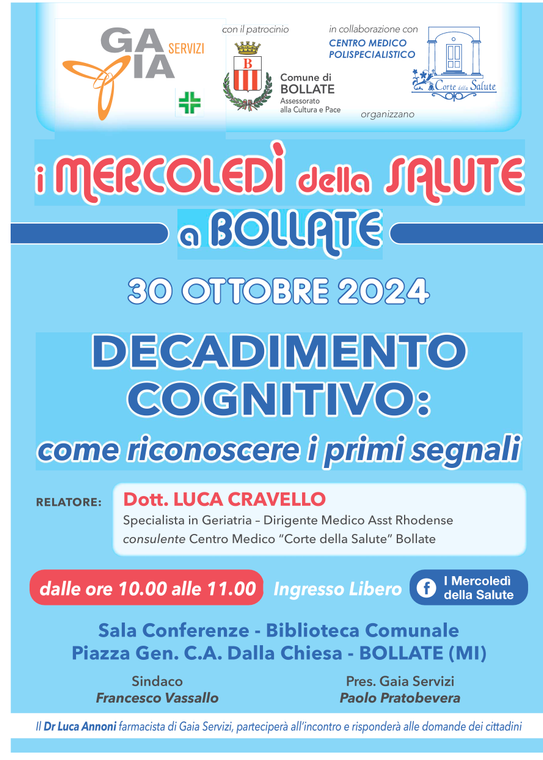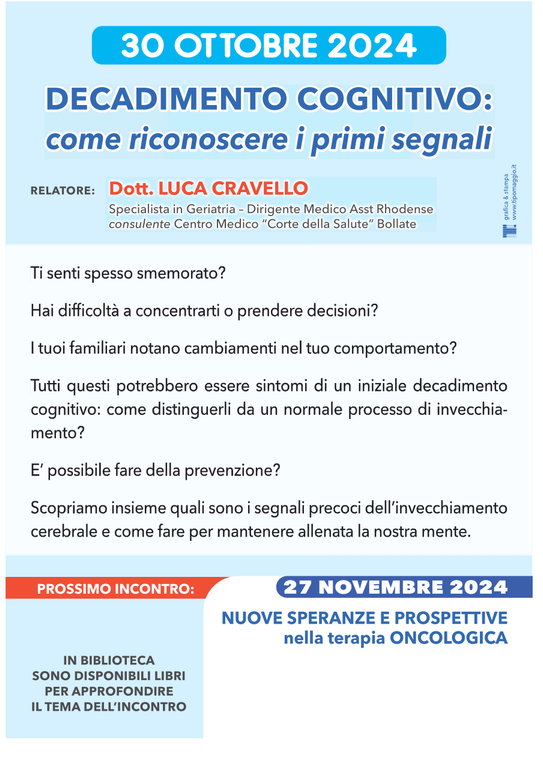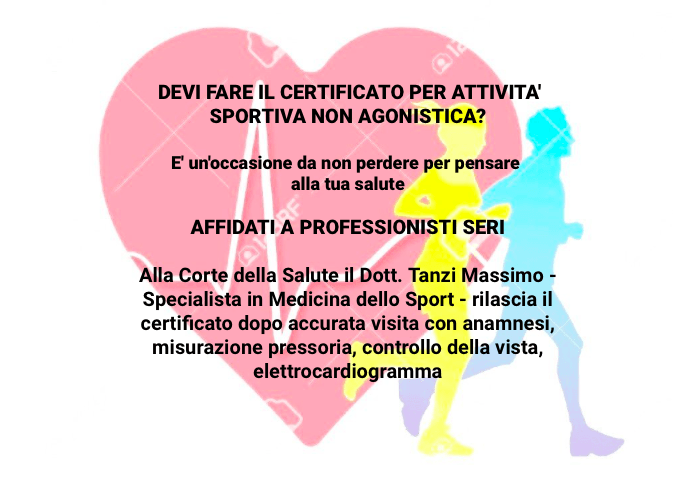YOUR HEALTH COMES FIRST
A TRUSTED HEALTH PARTNER

Our services
- Specialist Consultations
- Physiotherapy and Rehabilitation
- Psychological Services
- Aesthetic Medicine
- Complementary Medicine
- Instrumental Diagnostics
- Imaging Diagnostics
Insurance and Partnerships
- FASI (direct agreement)
- Fasi Open (direct agreement)
- ASSIDAI (direct agreement)
- FASDAC (direct agreement)
- Ente Mutuo Commercianti
- Polisportiva Ardor (Bollate)
- Cooperativa Bollatese
- Fasfiar Leonardo
- Fas Pirelli
- CRAL Comune di Bollate
- Previmedical
- RBM Salute
- Generali Welion
- Alleanza Assicurazioni
Contact Information
Location
HEALTH INITIATIVES - NEWS
HEALTH WEDNESDAYS IN BOLLATE
30 October 2024
COGNITIVE DECLINE: how to recognise the early signs


Do you often feel forgetful?
Do you find it hard to concentrate or make decisions?
Have family members noticed changes in your behaviour?
All of these could be early symptoms of cognitive decline—but how can we tell these apart from normal ageing?
Is it possible to prevent them?
These topics were covered on Wednesday, 30 October, by Dr. Luca Cravello, a geriatrics specialist and medical director at the Centre for Cognitive Disorders and Dementia of ASST Rhodense, and a consultant at the Corte della Salute Medical Centre. His talk, titled "COGNITIVE DECLINE: HOW TO RECOGNISE THE EARLY SIGNS," was held from 10 to 11 a.m. at the conference room of the Bollate Municipal Library.
With the average age of the population rising, cognitive decline is increasingly common. This decline, which can range from mild to severe, involves the loss of one or more cognitive functions and does not affect everyone in the same way. Cognitive functions are abilities that allow us to perceive the world and interact with others, including memory, attention, language, motor planning, object perception, spatial-temporal awareness, and executive functions. Some cognitive changes are part of the normal ageing process, and it is often difficult to distinguish these from symptoms of pathological cognitive decline. If left unchecked, these symptoms can progress, leading to more serious conditions such as dementia, depression, or even Alzheimer’s disease.
One of the earliest warning signs is memory loss for recent events: frequent forgetfulness about recent occurrences or conversations, difficulty finding the right words in conversation, or frustration with expressing basic ideas. Another indicator of pathological cognitive decline is difficulty with planning or problem-solving, such as following a recipe or managing household finances. Mood and behaviour changes are also common; the person may become more irritable, depressed, or anxious without clear cause. There may be problems with spatial awareness or depth perception, resulting in difficulties with driving. Other signs include loss of motivation and disinterest in previously enjoyed activities.
If you notice any of these signs in yourself or a family member, it’s important to consult a specialist for a thorough evaluation. Early intervention can make a difference in managing or slowing cognitive decline.
Thank you to all who joined us to explore these important topics in greater depth!








